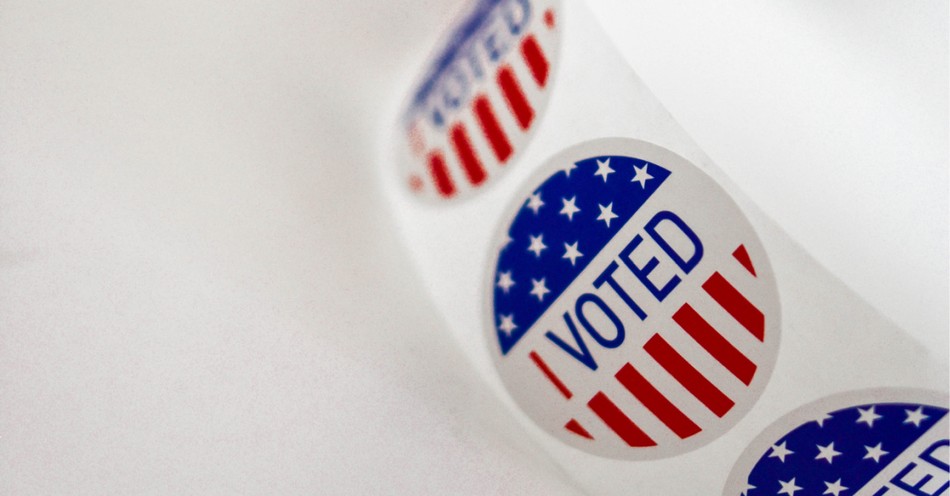One feature of American life for some time now is that women, as a group, tend to fall to the left of men politically. For much of the twentieth century, that gap was relatively minor. Until 1980, in fact, the sexes voted within a few percentage points of each other. Since then, things have changed dramatically.
Citing polling data from Gallup, Brad Wilcox of the Institute for Family Studies recently pointed out that the percentage of young men ages 18 to 29 who identify as Republican has risen by double digits in the last decade. “Some have doubted the idea that young men (18-29) are turning right,” he tweeted. “Time for them to wake up.”
As late as the mid-2000s, a similar portion of 18- to 29-year-olds of both sexes—just under 30%—identified as “liberal.” However, according to an American Enterprise Institute survey last year, 46% of white Gen Z women called themselves “liberal.”
Some conservative scholars like the Acton Institute’s Anthony Bradley think this emerging divide extends beyond political commitments to other areas as well, including morality. Last week, he tweeted:
Gen Z is different. Women are more liberal than men, and this includes personal morality as well. More and more guys are willing to wait until marriage & fewer women are. Women now celebrate having a “high body count” [a.k.a., many sexual partners] as a[n] empowerment. Today’s young men are more traditional.
More evidence is required before we can conclude that American young men have had some kind of moral awakening, especially given the popularity of morally objectionable figures like fitness influencer and depraved pickup artist Andrew Tate. Still, the trends in self-description seem to hold in other polls, even for high schoolers.
One factor behind this striking political divide between the sexes, especially the rightward turn among young men, is the Left’s obsession with condemning “the patriarchy” and “toxic masculinity.” Many young men hear this as a condemnation of their very existence. Similarly, the leftward lurch among women could have something to do with the perception that abortion is a women’s issue and the increasingly hysterical warnings that restricting abortion is the equivalent of subjecting women to Handmaid’s Tale-style reproductive slavery.
Still, pollsters have noted for decades now one thing that reliably predicts conservative views and voting, especially among women: marriage. Pick pretty much any election in any year, and half or even most married women vote differently than their unmarried counterparts. In the 2020 election, for instance, the gap between how married and unmarried women voted was 15 points, compared with a 10-point gap between married and unmarried men.
As we know, marriage has been in steep decline for years. In fact, Pew Research reports that the share of 40-year-olds who have never been married is higher today than at any time on record. Fertility, too, is near a record low, making our country more single and more childless than at any other time in its history. It would be foolish to think these numbers would not eventually show up in political behavior and that one of the most likely proofs would be the widening gap between the voting habits of men and women.
Marriage and family are chief among what conservative writers have long called society’s “mediating institutions,” those layers between individuals and the state that provide security, opportunity, and meaning without the government’s intervention. As entering marriages and creating families becomes rarer, it’s little wonder so many who historically would have looked for protection and provision in the home are now instead looking to Washington.
In other words, the wedges that radical feminism, the sexual revolution, and the breakdown of the family have driven between the sexes are likely the main reason for this growing political divide. Women and men were created for one another, not just to build families but to build societies. Since each sex is indispensable, both, in their own ways, are lost when isolated. As the Apostle Paul puts it in 1 Corinthians, “Woman is not independent of man nor man of woman; for as woman was made from man, so man is now born of woman. And all things are from God.”
Instead of pointing fingers at one another as Adam and Eve did after the fall, we should take this emerging political divide as clear evidence that without our oldest and most important mediating institution—the family, society unravels. There’s no way forward if men and women remain at such loggerheads, not only does dating become a nightmare, but the future is at risk. After all, the government cannot birth new citizens, voters, and taxpayers. Men and women stand or fall together. A nation in which the sexes are at war is a house divided against itself at the most fundamental level. Such a house cannot stand.
This Breakpoint was co-authored by Shane Morris. For more resources to live like a Christian in this cultural moment, go to breakpoint.org.
Photo Courtesy: Element 5 Digital/Unsplash
Publish Date: January 24, 2024
John Stonestreet is President of the Colson Center for Christian Worldview, and radio host of BreakPoint, a daily national radio program providing thought-provoking commentaries on current events and life issues from a biblical worldview. John holds degrees from Trinity Evangelical Divinity School (IL) and Bryan College (TN), and is the co-author of Making Sense of Your World: A Biblical Worldview.
The views expressed in this commentary do not necessarily reflect those of CrosswalkHeadlines.
BreakPoint is a program of the Colson Center for Christian Worldview. BreakPoint commentaries offer incisive content people can't find anywhere else; content that cuts through the fog of relativism and the news cycle with truth and compassion. Founded by Chuck Colson (1931 – 2012) in 1991 as a daily radio broadcast, BreakPoint provides a Christian perspective on today's news and trends. Today, you can get it in written and a variety of audio formats: on the web, the radio, or your favorite podcast app on the go.




